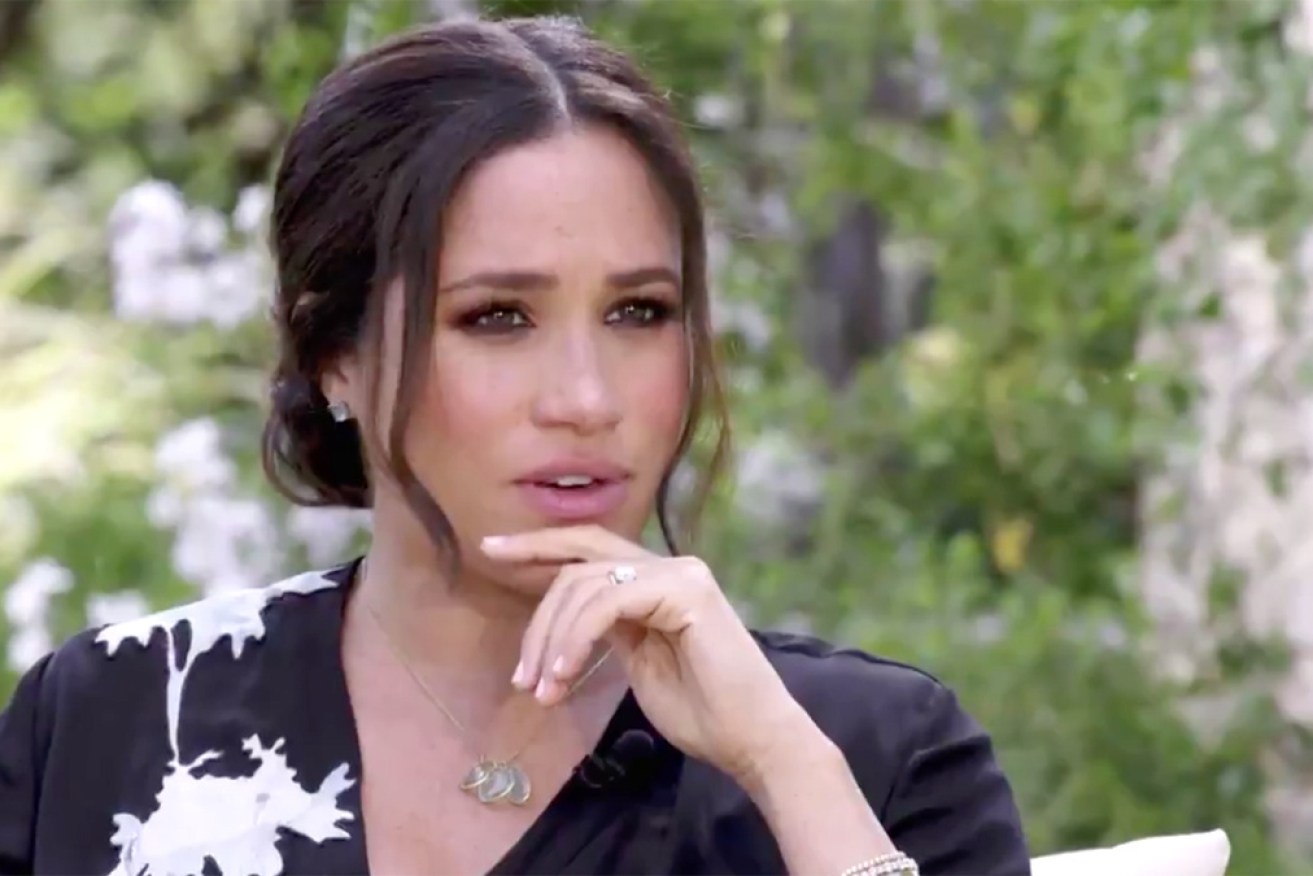Meghan’s royal racism claims renew push for Australian republic


Meghan Markle in the interview with Oprah Winfrey. Photo: Twitter
Meghan Markle’s claims of racism and bullying by members of the royal family in an explosive interview with Oprah Winfrey have reignited calls for Australia to cut ties and become a republic.
Her account of events is just another example of “how out of touch the monarchy is with modern Australia”, one critic says.
Sandy Biar, the national director and CEO of the National Republic Movement, pointed to Ms Markle’s “serious allegations” of systemic racism as behaviour that would be “completely unacceptable in Australia and least of all, in public office”.
“The idea of monarchy itself is inherently based on the idea of a superior bloodline and that kind of thinking has no place in Australian society – certainly not a democratic society,” he said.
Mr Biar’s push to abandon the royals and make Australia a republic were echoed by former prime minister Malcolm Turnbull, who led the Republican movement to the failed 1999 referendum.
“I think that a lot of people would have been feeing very sad about the account of events given in that interview,” Mr Turnbull told ABC’s News Breakfast program on Tuesday morning.
“Our head of state should be an Australian citizen. It should be one of us – not the Queen or King of the United Kingdom.”
Mr Turnbull called for a two-step plebiscite process, where Australians would first decide how to elect a president to replace the Queen and governor-general, and would then vote on which amendments we should make to the Constitution.
What would change if Australia became a republic?
Under our current system, our head of state is Her Majesty Queen Elizabeth II, though in practice this role is filled by her representative, the governor-general.
The governor-general has executive powers and oversees critical decisions like choosing when elections are held, who is appointed prime minister and which laws are passed.
If Australia becomes a republic, however, that would all change.

Queen Elizabeth II poses for a photo while signing her annual Commonwealth Day Message inside St George’s Hall at Windsor Castle. Photo: AAP
First of all, the Queen and governor-general would be replaced by an Australian president chosen by the people.
The best comparison would be Ireland, a Westminster democracy that has an elected head of state who performs the same limited role as Australia’s governor-general.
In Ireland, the extent of the president’s power is limited by the constitution, meaning presidential candidates cannot make campaign promises.
This means that unlike the system in the United States, campaigning for president doesn’t revolve around party politics or political platforms so there won’t be any calls to ‘Make Australia Great Again’.
Instead, the Australian public would vote for the president based on who they think would best represent the country on the world stage.
If it ain’t broke, don’t fix it
Emeritus Professor David Flint AM, national convenor of Australians for Constitutional Monarchy, told The New Daily it would be a waste of time and money trying to convince Australia to become a republic, given the idea failed by popular vote.
“We spent millions on [the 1999 referendum] and it didn’t achieve anything,” Professor Flint said.
“Malcolm Turnbull developed a model which was not acceptable to the Australian people. It was rejected nationally in every state and 72 per cent of electorates.”

Australian High Commissioner Philip Flood and wife Carole cast their votes in the 1999 constitutional referendum on the issue of an Australian republic. Photo: Getty
Professor Flint, an emeritus professor of law at the University of Technology Sydney, said it would be “ridiculous” to change the constitution on the basis of a TV interview with Ms Markle and Prince Harry.
Australia can do better
But even before Oprah’s interview with the Duchess of Sussex, Mr Biar said he believed Australia was worse off under its current system as a constitutional monarchy.
“At the moment, Australia’s head of state, the British monarch, acts in the best interests of the UK and not Australia,” he told The New Daily.
“It’s an inherent conflict of interest when you’re the head of state for two countries. In that arrangement, Australia always comes out second best.”
To the average Australian, the day-to-day influence of the royal family on our domestic politics might appear minimal.
That’s because the “way the monarchy works in the UK and in Australia is behind the scenes”, Mr Biar said.
“We know many of these conversations happen behind closed doors,” he said.
The removal of former prime minister Gough Whitlam by the governor-general in 1975 is the most high-profile example of the monarchy’s enormous powers at play, he said.








